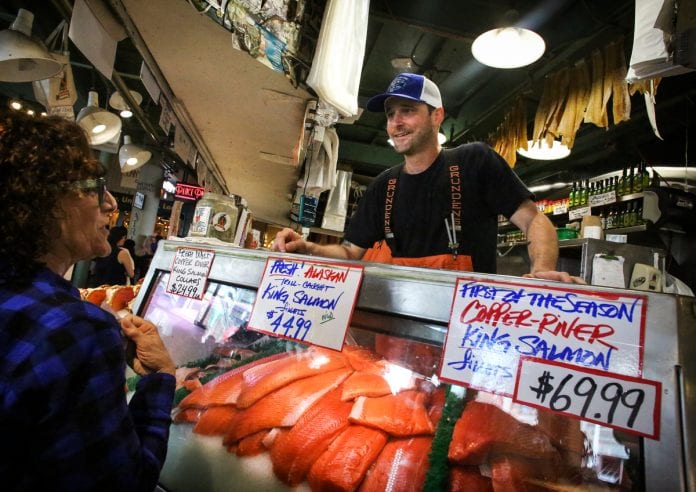
Some 1,500 delegates from around the world will converge on Seattle March 3-7 for the 9th World Fisheries Congress, this year’s theme being “Fish and Fisheries at the Food-Water-Energy Nexus.”
The gathering, this year at the Hyatt Regency Seattle, will allow participants to exchange perspectives on research, emerging issues, scientific breakthroughs, and related fisheries science, industry, conservation and management issues.
Organizers said the program will include an opening plenary, general sessions, education workshops and planned symposia related to sustainability, fish and aquatic ecosystems, fisheries and society and innovator fisheries.
As of Jan. 23, organizers said they had received over 1,200 oral and poster presentations from more than 70 countries. The complete agenda is posted online at https://www.xcdsystem.com/afs/program/Yf71aaK/index.cfm.
Keynote speakers from Australia, East Africa, Argentina and Malaysia with leadership skills in fisheries management, policy and research are to headline each day of the conference. The group includes Professor Bronwyn Gillanders of the University of Adelaide, David Obura, the founding director of Coastal Oceans Research and Development-Indian Ocean (CORDIO) in East Africa, Principal Scientist Ana Parma of the Argentine National Scientific and Technological Research Council, and Shakuntala Thilsted, director of the CGIAR Nutrition, Health and Food Security Impact Area Platform. Thilsted was awarded the 2021 World Food Prize for her ground-breaking research on developing holistic, nutrition-sensitive approaches to aquatic food systems.
Among the symposiums being offered are topics ranging from managing fisheries bycatch of threatened species, making a case for ending bottom trawling, sustainable fisheries management through innovative seafood traceability solutions, 100 years of science-based fishery management by the International Pacific Halibut Commission, tracking global fisheries’ sustainability, and incorporating new methods into science-based fisheries management.
Workshops topics range from fisheries strategies for changing oceans and resilient ecosystems, GIS applications in fisheries, an Indigenous fisheries gathering-transboundary waters, fish, peoples and governance to mobilizing a basic income in the fisheries for coastal regions and Indigenous communities.
The group also announced the upcoming 154th annual meeting of the American Fisheries Society in Honolulu Sept. 15-19.














